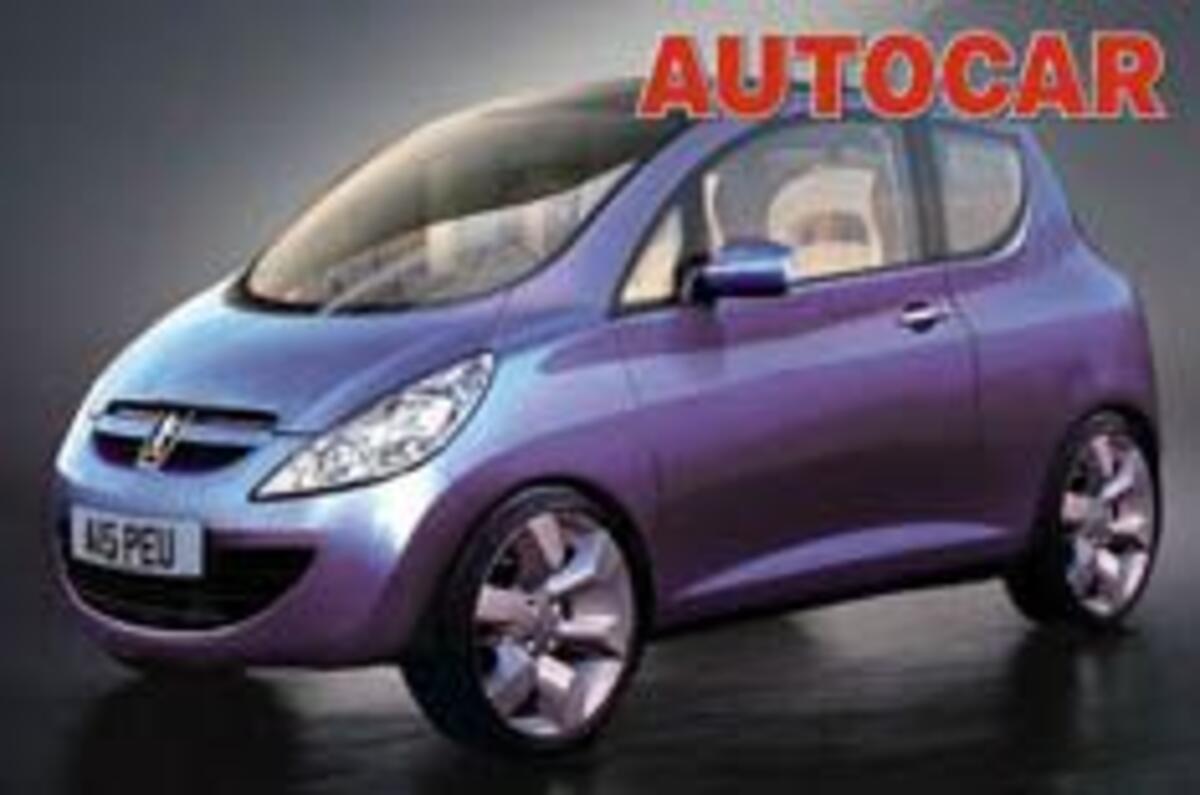Peugeot, Citroen and Toyota will reveal this trio of radical £5500 ‘people’s cars’ at next year’s Geneva Motor Show.
The no-frills hatchbacks, funded by a £1bn co-operation, will attempt to break the mould of affordable cars by matching low-cost 70mpg motoring with stylish looks and big-car safety – a mix rarely achieved in low-cost, small cars.
‘These are cars that must be cheap and available to all people while preserving much of the equipment usually available today,’ said an insider.
Peugeot’s hatch (above) will replace the 106 and be called the 107. Citroën’s C1 (right) will be positioned below the C2 and Toyota’s below the Yaris, although at launch it will overlap with it. The next Yaris will grow in size when it is launched in late 2007.
Being developed under the code-name B Zero – a reference to the city car or ‘sub-B’ segment – all three cars are engineered by Toyota. They will share a common platform and some body panels to keep costs down, but each will have different styling and driving dynamics.
All three will be built at a new factory at Kolin in the Czech Republic, designed to the exacting standards of the Toyota Production System. Peugeot and Citroën will control purchasing and suppliers.
Project B Zero is likely to be an instant hit with European buyers and production can be ramped up to a maximum volume of 300,000 units a year, split equally between the three brands, 12 months from launch.
Designed as three- or five-door variants, the final decisions on which models to launch at Geneva in 2005 have yet to be made.
The cars will be about 3.4m long, or 300mm shorter than a Peugeot 106, and will feature conventional body architecture and seating positions to accommodate four adults in reasonable comfort.
PSA-Toyota reckon the new car’s handling could trump that of competitors’ such as the new Fiat Panda. ‘This is a small, more basic and cheaper car, but it has all the road capability of any of the cars in our range,’ said one Peugeot engineer.
Although B Zero will be cheap, it won’t be stripped-out. Twin front and side airbags and power steering will be standard; air-con will be optional. ‘The problem is that once buyers have tasted these features, they want them regardless of price,’ said a source. Otherwise options will be limited – a deliberate policy to simplify production and speed up assembly times.
A further simplification is an engine choice limited to either a 1.0-litre petrol or 1.4-litre diesel, each with an output of around 60bhp. The former is a Polish-built variant of the Yaris VVT-i unit and the latter a version of the all-alloy unit developed with Ford. With a weight target under 800kg, diesel versions are tipped to average 70mpg.
The ‘sub-B’ market will grow to 1.2m units, or eight per cent of the market, by 2005 as buyers continue to downsize; the ‘D’, or Mondeo-sized, segment will shrink to 12 per cent.‘There will still be a market for bigger cars,’ said Peugeot product planning chief Bruno de Guibert. ‘But the gap is steadily closing.’




Add your comment